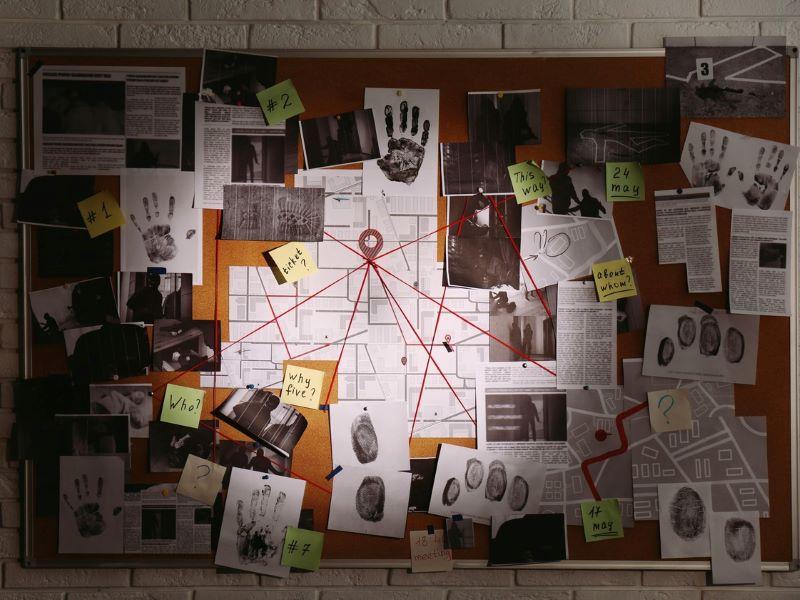In fiction, detective work is typically portrayed as glamorous, perilous and exciting and nearly always successful in apprehending and prosecuting the perpetrator of a heinous criminal act or stopping a terrorist attack. Real-world practitioners will tell you that these fictitious depictions of investigators, however, are rather divorced from scientific research and real-world investigative practice.
The Jill Dando Institute (JDI) for Security and Crime Science at UCL is a multidisciplinary education and research department that takes a unique approach to understanding and dealing with crime, drawing on methods from many disciplines to develop approaches to reducing crime and improving security.
More than that, we use real-world practitioners’ real-world experiences to make specific connections to operational practice. This encourages students to critically reflect on whether classical criminological theories of crime and the causes of crime can sufficiently explain occurrences in the real world of policing and security, ie, what really happens and how decisions are made in dynamic, ever-changing environments laden with complexity and risk.
- Hosting industry professionals: embedding vocational skill-building into higher education
- Contextual learning: linking learning to the real world
- Challenge-based learning: design and delivery in undergraduate courses
Students have several opportunities to engage with a range of real-world practitioners and crime and security experts, which is a crucial aspect of the pedagogy in our crime science education programmes. In the criminal investigation module, for example, students meet homicide and counterterrorism investigators, covert surveillance specialists, cybercrime experts, intelligence analysts and prosecutors first-hand. They use their experiences to make connections between contemporary scientific theories and the criminal investigation life cycle.
Pedagogical evidence supports the use of real-life experiences to boost participation in learning sessions by making them engaging and enjoyable, as well as offering tangible examples that make topics less abstract.
Specifically, the evidence supports the use of real-life experiences to boost participation in the following ways: students are given the opportunity to critically reflect on the explanatory theories they have been taught throughout the course of their degree with the assistance of practitioners’ real-life experiences, in this instance, insights into criminal investigations.
How to embed professionals’ experiences into your course
The criminal investigation module is organised around 10 two-hour lectures and 10 one-hour seminars. The lectures are used to educate students on various themes, theories and concepts, such as the occurrence of investigative failures and miscarriages of justice (ie, why things go wrong in investigations).
Following the lecture, there will be a session with a guest practitioner or expert. To achieve the desired learning outcomes, the experts employ an immersive case study of real-world events around which they structure the weekly presentations of their lived experiences. They use empathy to engage and immerse students in themes from their perspective – essentially, to get students sitting on the edge of their seats.
The central plot line develops over the 10 weeks, with many expert speakers discussing various stages of the investigation. For example, in one lecture, we might examine (practically and theoretically) the impact of decisions made by investigators in the early stages of a case, ie, during the “golden hour”, and how these decisions can lead to missed opportunities to collect vital evidence and result in the failure in the investigation, as in the tragic case of the racist murder of Stephen Lawrence in 1992.
Students hear from a senior investigating officer, who will lead them through the methods they used to make choices throughout the early phases of an investigation using a real-world case study. The guest speakers also discuss their own experiences with making poor decisions and the consequences for victims’ families. Students are urged to consider what they would do, how making the wrong choice would affect the victim’s family, and how it would influence the investigation, their team and themselves.
Be aware, using external speakers can have drawbacks. Colleagues have had to repair the harm created by a guest speaker deviating from the topic, confusing students, employing poor humour or even contradicting what you may have informed them about a subject. Keeping guest speakers on track with the session’s goals and planned learning outcomes is critical to achieving the optimal learning experience and can be achieved by sticking to a clear structure.
Top tips for successfully working with external practitioners
1. Choose carefully: Select appropriate experts willing to tell stories and share their personal experiences, including when things go wrong in practice.
2. Collaborate on the “real-world” content: Work closely with the speaker to develop the session. Discuss with the speaker the aims, learning objectives and how you would like the session structured, eg, using immersive case studies, lived experiences, empathy.
3. Link all the module content: Review the material and plan for the lecture before the session to ensure clear links between the theoretical teaching and the case study.
4. Build in time for Q&A. Students always have a lot of questions, so make sure there is time for this at the end.
5. Have a back-up plan. Consider what you will do if, at short notice, the guest speaker is unavailable, eg, have another seminar session ready to go that you will lead.
If you find the right speakers to partner with, they can really bring the topic alive for students and help them contextualise their learning. Student feedback on these real-world investigation case studies include:
“All the cases were interesting. It has challenged everything I understand about crime and how it is investigated. I can see how some theories work and others not so much when there are failures in criminal investigations.”
“By far the most intriguing module of the entire degree. Having practitioners in to talk about their experiences has been inspirational and informative.”
Paul McFarlane is a lecturer in the department of security and crime science at UCL.
If you found this interesting and want advice and insight from academics and university staff delivered direct to your inbox each week, sign up for the THE Campus newsletter.




comment